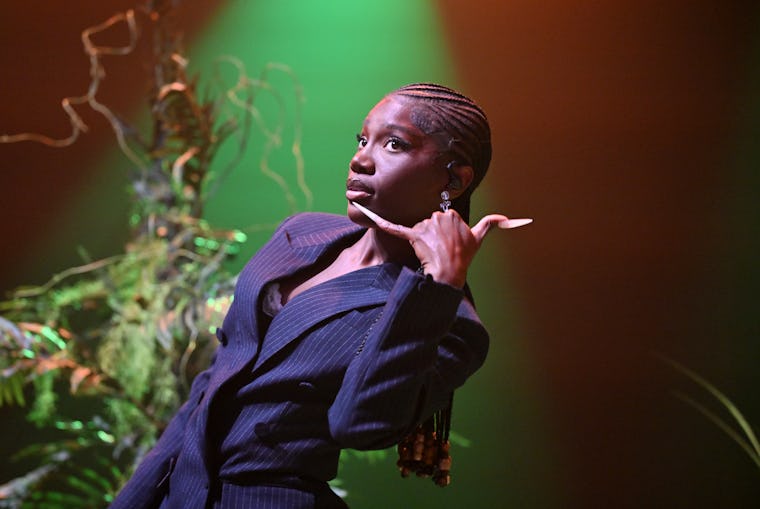There’s a certain rhythm to Grammy season—the rush of names, the rise of newcomers, and the familiar hum of surprise and snub. Yet, this year, something feels different. The Recording Academy seems to have loosened its collar, welcoming both the old guard and the genre-disrupting new into the fold.
For the 68th Annual Grammy Awards, set to take place on February 1, 2026, in Los Angeles, Kendrick Lamar stands once again at the intersection of art and acclaim. The Compton-born rapper, who turned last year’s ceremony into his personal victory lap with Not Like Us, leads this year’s race with nine nominations—including the holy trinity of Song, Record, and Album of the Year. In a period many called a quiet year for hip-hop, Lamar’s dominance reads like a statement: the genre never went silent—it just shifted frequency.

Kendrick Lamar performs with SZA during Apple Music Super Bowl LIX Halftime Show
Photo: Getty Images
Trailing close behind, Lady Gaga continues her shapeshifting reign, securing seven nominations that solidify her as both performer and auteur. She ties with producers Jack Antonoff and Cirkut, proving that pop’s architects still have the power to define the sound of a generation. Meanwhile, Leon Thomas, the former child actor turned R&B alchemist, finds himself in rare company with six nods—his ascent marking one of the year’s most delightful surprises.
Bad Bunny, who’s often been boxed into the Latin Grammys corner, finally breaks through in a historic sweep. Six nominations, all in major categories—including Album, Record, and Song of the Year—make him the first Spanish-language artist to achieve this trifecta. It’s a milestone not just for him, but for an entire movement that has spent years pressing its ear against a closed door.
And then there’s K-pop, the genre once politely ignored by the Academy, now stepping firmly into the frame. Two K-pop acts are up for Song of the Year: Golden, the electrifying lead from KPop Demon Hunters, and APT by Rosé (formerly of Blackpink) featuring Bruno Mars. Rosé’s four additional nominations mark a watershed moment for the genre—proof that global pop no longer needs translation to be heard.

Doechii performs during her “Alligator Bites Never Heal” tour
Photo: Getty Images
Elsewhere, Timothée Chalamet makes an unexpected appearance, earning his first Grammy nod for A Complete Unknown, the Oscar-nominated Bob Dylan biopic. It’s the kind of crossover recognition that reaffirms what pop culture has known all along: the lines between music, film, and performance have long since blurred.
Conspicuously absent from the list, however, are two perennial powerhouses—Beyoncé and Taylor Swift. After Beyoncé’s Cowboy Carter domination last year, and with Swift’s The Life of a Showgirl falling outside the eligibility window, the stage feels refreshingly open for new energy to take center stage.
If last year’s Grammys were about redemption, this year’s might just be about evolution. Lamar’s lyricism, Gaga’s reinvention, Bunny’s cultural reclamation, and K-pop’s long-overdue nods speak to a shift in what the industry values—authenticity, hybridity, and global resonance.
As the countdown begins to February’s ceremony at the Crypto.com Arena, one truth hums beneath the glitter: the Grammys are finally starting to sound like the world we live in.





